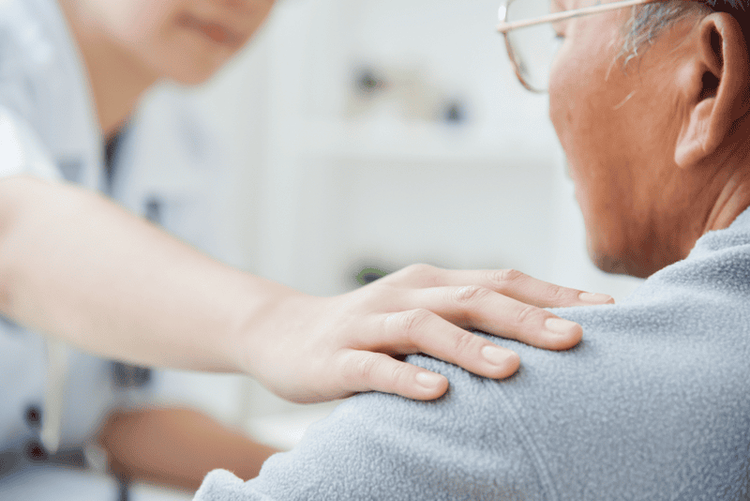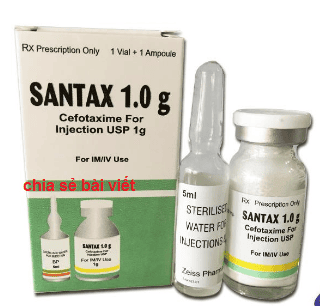This is an automatically translated article.
The article was professionally consulted by Specialist Doctor II Tran Thi Mai Huong - Department of Obstetrics and Gynecology - Vinmec Hai Phong International General Hospital.Gonorrhea is a relatively common sexually transmitted infection caused by the bacteria Neisseria gonorrhoeae. Typical symptoms of acute gonorrhea are painful urination, purulent urine, which can leave many complications for the patient.
1. Gonorrhea test
Gonorrhea can be diagnosed in many ways. The doctor will ask to take a sample of the swab at the affected site with a cotton swab (penis, vagina, rectum or throat) to look on a glass slide for gonorrhea bacteria. If your doctor suspects you have a joint or blood infection, your doctor may order a blood test or direct joint fluid to examine under a microscope.
The doctor may take a sample of fluid (genital fluid) from the symptomatic area (penis, vagina, rectum, or throat) with a cotton swab and examine the specimen on a slide. If your doctor suspects that you have a joint or blood infection, he or she will order blood tests or insert a needle into the symptomatic joint to drain some joint fluid.
Then the person performing the test will add the dye and examine the sample under a microscope. If the cells react to the dye, you most likely have gonorrhea. This method is relatively quick and easy, but not absolute.
The second method is a culture method that is done by taking the sample for testing as above and placing it under special conditions. Specimens will be incubated under ideal growth conditions. After a few days, gonorrhea bacteria will grow if gonorrhea is present.
Preliminary results are read within 24 hours. Final results will take up to 3 days.
2. Treatment of gonorrhea
Modern antibiotics can cure most gonorrhea infections. People can visit medical facilities at medical facilities.
2.1 Home Remedies There are no home remedies or over-the-counter medications that can treat gonorrhea. If you suspect you have gonorrhea, you should seek medical attention as soon as possible.
2.2 Antibiotics Gonorrhea is usually treated with a single injection of the antibiotic Ceftriaxone into the buttocks or a single dose of Azithromycin taken by mouth. When you are given antibiotics, you should feel some relief for a few days.
The law requires doctors to report gonorrhea infections, usually to the county preventive health department. Preventive health professionals will identify, contact, test and treat both sexual partners to help prevent the spread of infection. Health professionals will also contact other people who have had sex .
The emergence of antibiotic-resistant strains of gonorrhea increases the challenge of treating the disease. People who are resistant to antibiotics may require a broader dose of treatment, with a single course of oral antibiotics or dual therapy with two different antibiotics, usually for a total of 7 days of therapy.
The dose of antibiotics used for long-term treatment is usually 1-2 times/day. Some common antibiotics used include azithromycin and doxycycline. Scientists are working to find a vaccine that prevents gonorrhea infections.
3. Complications of gonorrhea
With gonorrhea in women when an untreated infection affects the uterus, fallopian tubes and ovaries. Leads to pelvic inflammatory disease (PID) and can cause severe, chronic pain that can turn chronic and damage female reproductive organs.
Pelvic inflammatory disease (PID) can also be caused by other sexually transmitted diseases. Women can also develop scarring or blockage of the fallopian tubes, which can affect their ability to get pregnant in the future or cause an ectopic pregnancy. An ectopic pregnancy occurs when a fertilized egg is outside the uterus. Gonorrhea can be passed to an infant during birth.
Men may experience scarring of the urethra. Men can also get a painful abscess on the inside of the penis. Infection can reduce fertility or sterility.
When gonorrhea spreads into the bloodstream, both men and women can develop arthritis, damage to heart valves, or inflammation of the lining of the brain or spinal cord. These are rare but serious complications.

In order to detect diseases early and effectively treat them, you should check out and screen for social diseases at Vinmec International General Hospital, which is one of the major hospitals that help customers screen for social diseases.
Package of screening for social diseases for all ages, for both men and women. When registering for the Social Disease Screening Package, customers will receive:
Dermatology Specialist Tests Perform tests such as: HIV Ab rapid test, Chlamydia rapid test, Treponema pallidum rapid test, rapid test. Qualitative and quantitative Treponema pallidum TPHA testing, bacteriological staining and endoscopic staining of fungi. Customers can directly go to Vinmec Health system nationwide from the website for support.
Please dial HOTLINE for more information or register for an appointment HERE. Download MyVinmec app to make appointments faster and to manage your bookings easily.
Reference source: healthline.com













